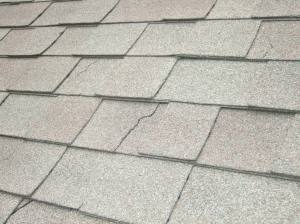Asphalt Roof Shingle Warranty
Understanding An Asphalt Roof Shingle Warranty


Improper Installation Vs Manufacturer’s Defect
The roof shingle warranty discussion must start with the blame game. Anyone that’s been involved with failing asphalt shingle roofs will tell you that the blame typically falls on bad installation. The reality is that asphalt shingle manufacturers are good at manufacturing shingles in a controlled factory environment. Once shingles leave the package they end up being installed in a not so perfect environment with varying degrees of supporting construction, weather and labor skill.
If you read the shingle warranty carefully you ill quickly realize that it only covers defects as a result of manufacturing. Asphalt shingle warranties do not cover defects due to poor installation or defects in the structure. Furthermore it becomes quite difficult to distinguish and prove what has caused the defecting roofing. Of the few successful warranty claims that I’ve personally heard of they have all been a result of non-matched color and/or texture between packages of shingles.
Possible Manufacturer’s Defects
Quite often I’ll hear a home owner say they think their roof has defective shingles because they can see some corners curling up. Slight curling of shingles is normal and fairly common. However, unless the curling is significant it won’t be considered a manufacturers defect. Other more significant signs of manufacturing defects include cracking (see photo above), splitting, blistering and loss of surface texture.
If you think that your roof has a problem I recommend calling a reputable roofing contractor. Be sure to call a company that’s been in business for several years, a company that’s insured, offers references and experience dealing with warranty issues. I would recommend that you call 2 or 3 different contractors and get several evaluations of the problem. If more than one point to the same problem it’s likely you’ve discovered an accurate assessment.
Submitting Roof Shingle Warranty Claims
If you’ve decided that you have a potential claim on your warranty you’ll need to prepare some paperwork. It’s very important that you follow the warranty guidelines closely in order to have the best chance of success and a timely resolution. Most manufacturers require photos of the problems along with sample shingles, receipts from the installation and an accurately completed warranty application. Most roofing contractors that deal with warranty issues can help you with this process. In addition, local building supply companies that sell shingles can often help support the process.
Prorated Warranty
Most roof shingle warranties come with some sort of prorated terms. For instance, many warranties will feature a labor and materials replacement cost for the first year or some short term up to 5 and sometimes 10 years. The terms vary but often cover the price of new shingles and a fixed labor rate per 100 square feet of shingles. However, most of them hardly ever cover the cost of removing the damaged shingles, disposal, fasteners, flashing, vents or other miscellaneous roofing materials.
After the initial period the warranty typically only covers the cost of shingles at a prorated cost based on the age of the roof. So it’s very possible to end up with a roof that’s only 5 years old with a defective shingle where the replacement cost might be $5,000 and you only qualify for $500 based on the warranty.
The real kicker is the fact that 60% to 80% of a roofing job cost is labor and not the cost of the shingles. Furthermore most roofing contractors are only going to warranty their workmanship and not labor associated with a manufacturer’s defect.
Transferable Warranties
Some shingle manufacturers offer transferable warranties. This allows a new owner to potentially recoup costs if the shingles become defective after purchasing the home. Again you’ll need to read the fine print as many of them have limitations. The most important point here though is to ask the seller of the home for any contracts from the roofer or manufacturers warranty information.
Most shingles have information stamped on the back which will help identify the shingles if you’re unable to find the paper work. This can be hit or miss especially when trying to identify the age of a shingle.
Sample Warranties / References
There are far more shingle brands, types and products than we can cover in this short article. However, some of the following links cover some of the more popular shingles on the market. Reading over some of these warranties will give you a better idea of how the process works and what is typically covered.
- CertainTeed Shingle Warranty
- TAMKO Limited Warranty
- Owens Corning Roofing Warranty
- IKO Roofing Warranty
- GAF / ELK Warranty
Selecting A Roofing Contractor and Shingle
After reading this I think you’ll quickly realize that long term roof shingle warranties are marginal at best. What you should really consider when hiring a roofing contractor is both the installation warranty and the manufacturers warranty. When asking for estimates for a new roof you should also be asking for a copy of their written installation warranty along with a sample of the manufacturers warranty.
Selecting the cheapest price may not seem very attractive if the shingles come with a really poor warranty and the roofing contractor only warranties the installation for 90 days. Take your time and do your homework. The extra time and effort may pay off in a big way some day when you most need it.
Photo Credit: Bestroofer’s Blog
Recent Posts
Framing Stick Nailer vs Coil Nailer
Which is Better a Stick Nailer or Coil Nailer? Framers have many choices in nailers…
How Many Roofing Nails Per Square of Shingles
Estimating How Many Nails for a New Roof When it comes to estimating materials for…
Composite / PVC Decking – Layout Tips & Advice
Composite / PVC Decking Layout Tips and Advice Composite and PVC decking have really changed…
Benefits of an ERV System (Energy Recovery Ventilator)
Benefits of ERV Systems (Energy Recovery Ventilator) If you're building a new home or doing…
Vermiculite Attic Insulation Abatement
Vermiculite Attic Insulation If your home was built before 1990 there is a chance it…
Nuisance Tripping of AFCI (Arc Fault) Circuit Breakers
Arc Fault (AFCI) Circuit Breakers Tripping Often An arc-fault circuit interrupter (AFCI) or arc-fault detection…
